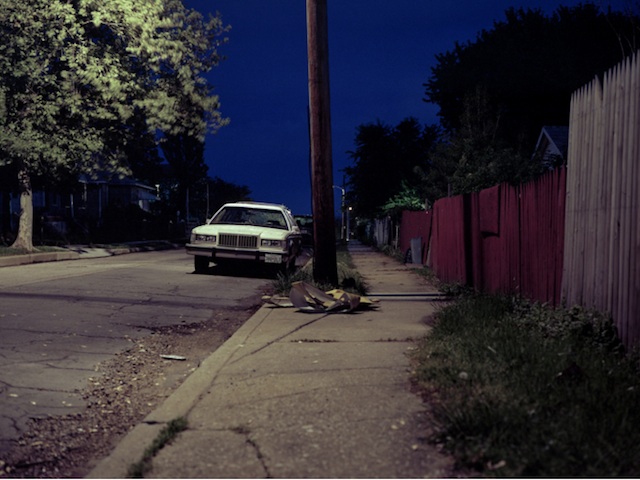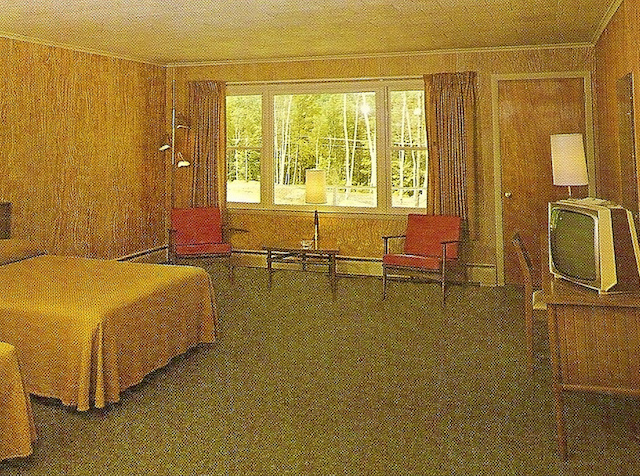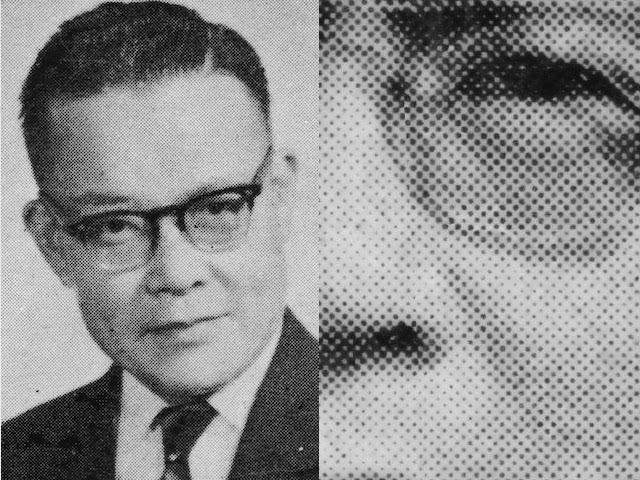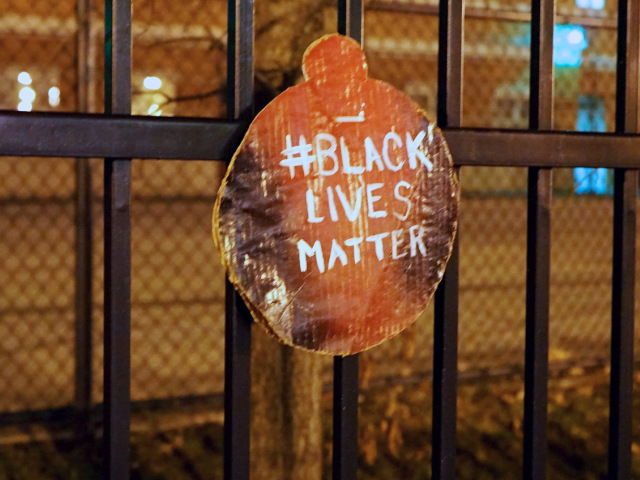He’d gotten used to the routine of filling out the job applications: name, address, past positions, done. But then came that deadly box, ‘Have you ever been convicted of a crime or felony?’

February 5, 2016
Abdi thought it was ludicrous how his resume had so much work experience on it yet none of it mattered when it came to employers saying yes or no. He’d gotten used to the routine of filling out the job applications: name, address, past positions, done. But then came that deadly box, Have you ever been convicted of a crime or felony? And, stricken by innate pangs of justice and honesty he learned from Marlowe and Hammer, he would always answer, “Yes.”
At first he thought this would be overlooked. That his forwardness and honesty would win over any discerning party. This was East Baltimore after all, who wouldn’t have a criminal background? He posed that point to the manager who slid the application back to him across the table and said, “Just lie next time. That’s what they all do.” He walked out of offices, employment booths, leaving behind yet another shard of resolve.
He looked up and down the street. It was midday. Stragglers loitered on the corner; others walked out of delis and fish fry joints, carrying a late lunch in a styrofoam box. A man with torn shorts and a dirty wife-beater picked at his afro, then laughed. At what, Abdi had no idea.
He hopped a bus that zipped across Lombard and got off in the classy, upscale center of the city. Waiters hung out of the front doors of bars and restaurants, hoping a lunch spotter would drop in for a quick bite. Abdi had been to one of the places on this block once, a long time ago, on his twelfth birthday. He had wanted to go to a Turkish restaurant after reading a thriller from Eric Ambler. The Levantine adventures of wronged men sent him craving tea, kebabs, rice. Momma hadn’t enjoyed the dinner much. He ate hers. Now the place was gone.
He crossed a street, praying that at least Red Emma’s would be open—it was. The café was a counter-culture house; stacks of advocacy zines and protest leaflets met you at the door. Images of Marx and Che were stamped on the walls, the chairs, the menus, the barstools. Every server had a piercing somewhere, as did some of the patrons.
Abdi walked in and sat at the bar. “Coffee?” the server asked. He had two big loops in his earlobes the size of wedding bands.
“Is Stella here?” Abdi asked.
“She’s supposed to be here in a bit.”
Abdi sighed. Same schedule, same routine. Would it be the same Stella? He’d met her all those years ago at in their sketching class. She was a total prodigy; the rest of the class hated her. Abdi had gone home that night to adorn the back page of his sketchbook with her blonde tufts, lupine nose, and serene eyes.
“Coffee?” the server asked again. Abdi calculated what change he had left from Momma’s allowance. She’d given him $40 for the week. He refused any more.
“Sure,” he said with a sigh.
He took his coffee and sat down. Stella. That day, feeling especially confident after class, he’d asked her if she wanted to get coffee. She stared up and down the street and said, “I don’t really know the city. Is there a place really close around here?”
“I don’t really know,” he’d said. They walked and talked, looking for a place that they never found. It was enough time, though, to tell one another about their lives. She was from the County, from up in Cockeysville where her parents had a sprawling property with a stable and a horse. She was never the academic type; her interests had always been in art. With her head held high, she told her parents she was coming to the city.
“That’s pretty brave for a white girl,” Abdi had joked. She laughed then. Later she told him it stung inside, that it had been a big, brave choice. Her father graduated from Yale with his doctorate and expected nothing less from her. And the insinuation that she couldn’t handle herself in the big city was all the more disheartening.
“You know,” she said, “whites are going to be minorities in twenty years. Stand up, rise up, brotha.” He laughed this time. She asked if that didn’t anger him, calling him “brotha.” He said he never thought about stuff like that. “What if I call you ‘nigga’?” she said. “I think I’m supposed to be angry,” he said. “But I honestly don’t feel anything.”
Behind him, he suddenly heard her voice. Blood surged through his body, as it hadn’t before in the week past. “Your friend’s here,” he heard the man say. Abdi saw her poke her head out from the back room, briefly. Abdi looked down at the coffee, feeling ashamed. She came towards him.
“I wondered if you’d show up here,” she said. She stood before him, her blond locks gone, dyed red and cut boy-short. A ring looped her right nostril, and a few more around her ears. She wore a black tank-top and there was a tattoo across her shoulder. A child of Red Emma’s: a far cry from the county girl who wanted to study art.
“So you really went for the whole revolution thing.”
“It’s just a look, y’know?” She kept averting his eyes, darting hers back and forth. “How long you been out?”
“Not long.”
“Are you good? Like, y’know, good?”
“Yeah, I’m good.”
“Okay. Well here’s a refill. I don’t know what you came here to say but whatever it is, I’m totally cool about it, about us. Shit happens, y’know? You move on.”
He sipped the coffee. It occurred to him now that he had never really liked coffee.
“Actually, I’m looking for a job.”
“So you came here?”
“I’ve been everywhere.”
“We’re not hiring. Sorry you made the trip.”
“Jesus, Stell, what the fuck. I’ve been in jail two years and now I’m out and I want a little fucking compassion from the people I love and trust. This is what I get?”
“I…I have things on my mind right now, ‘kay? I’m sorry your tragedies aren’t the center of everybody’s world, but other, bigger things are going on. We fucked like, twice. That does not make me some kept woman waiting for you to get out of prison.”
“Fine,” Abdi said. He had no idea how much the coffee cost, but threw a five dollar bill on the counter and got up.
“Wait, it’s on the house,” she said. “Take it, I’m sorry.”
“Brave little white girl gone brown from the coffee,” he said, and walked out.
***
This week the Pastor’s sermons seemed especially enlivened with the talk of the new metro additions. He suddenly had lots to say about social progress and the power of modern civic engineering.
After the service, Abdi went to the Pastor’s chamber. It was a modest office tucked behind the backside of the chapel where the organ stood. Abdi saw the impressions of the huge brass pipes in the drywall and wondered if chips of paint ever fell on the Pastor’s head as he sat as his desk during choir practice.
“Sit down, son,” he said. “How’ve you been?”
Abdi nodded several times, as he did usually when he didn’t want to speak too truthfully.
“We are all praying for you here. I want you to know that. You know that, right?”
“Of course, sir.”
“Don’t call me sir. I’m not your pa, boy.”
This time the Pastor noticed the nods, and took it ill. “I’m sorry, I didn’t mean it that way, son. Of course, many members of our congregation are without fathers, but that hasn’t made them lesser men.”
“I know.”
“Or women,” he quickly added. “We are all the same children of God, and he loves us just so. Just as your mother loves you unconditionally, so does He. But you are special, Adbi. Do you know why?”
“Not a clue.”
“Abdi. Your name. Do you know where it comes from?”
“Abdel. It’s Arabic. It was given to me by my dad. Before he ran off.”
“Do you know what it means?”
“Never really cared.”
“Abdel, the same as Obadiah, the servant of God. You see, Abdi, you are a child, yes. But you also must be God’s servant, and spread his good word. Listen, I have something for you here.”
The Pastor bent down and sifted through the drawers in his desk. When he came up empty handed, he got up from the chair and began hunting through the office. File cases, shipping packages, and collection boxes were piled around without any reason. Abdi watched him pick up one, frown, and go on to another.
“Ah, here.” he said, finally. The Pastor sat back at the desk and presented Abdi with a small box full of pamphlets. “There is no better way for a young man to spend his time than making sure others know they always have a welcome place here in the church. That is how we grow and become a better, stronger community. Open arms, open information.”
“What do I do with these?”
“Hand them out, of course. They’re a little old, they still have the dates for the soup can drive on there. We stopped that a while back.”
Abdi opened the tri-fold. He saw faces he knew and faces he had forgotten.
“That is,” the Pastor continued, “I should think it is accurate. It is the history of two thousand years so far.”
He bellowed at his joke. Abdi didn’t look up and kept pretending to read intently.
The Pastor insisted on giving Abdi a ride back home. They walked together out to the parking lot, where he went on about the contents of the pamphlet, clearly seared into his memory. Outside, the lot was nearly empty save for one white behemoth of a car, with fourteen-inch rims and a spoiler on the back. It looked like some kind of garish spaceship with wheels. The pastor clicked his remote. “Well, are you coming, son?”
Once they were on the road, the Pastor spoke again. “Nice ride, huh? My brand new baby.” He had a new gleam in his eye that Abdi had rarely seen, if even, behind the pulpit. Only in rare moments, when it was clear the sermon had hit a nerve did the Pastor sometimes become so illuminated he had that ability to look simultaneously at the crowd whole, and each person separate. He looked liked that now, watching the road and yet seemingly taking in each feature of the car’s interior like a each was a favorite child in the brood.
“This is what God” – he pointed at the pamphlet – “can get you, son. You don’t need that gangster life. You don’t need that run and gun, that macho cool act to ride the big car, act like you cleaned up the house. A dutiful servant of God will always be well rewarded.”
***
This time Abdi walked into Red Emma’s an hour after when he’d been here last time, to make sure he would catch Stella. But when he came through the door, it was the same guy as before, idly standing behind the bar.
Abdi ducked behind the bookshelves and passed his fingertips against the spines, his eyes fixed toward the bar. There was a fat ogre of a man making conversation. He had come to fix the café’s TV and didn’t even bother with tools; he pulled out a strip of gold wire thick as spaghetti and tied it to two fixtures behind the set, and voila, Family Feud was on in time for the final round.
Alone, Abdi often reverted to the same thoughts, a habit from all those lonely nights in prison. He’d gone nowhere. He was a good student and bright kid; he did what Momma said and played by the rules. But God or the Man or Lady Luck decided to smack him back into a pit. Why hadn’t he gone to college somewhere far, somewhere out in the country with the simple folk who walked with books always braced in their elbows and shirts neatly pressed and tucked in? Why didn’t he ever want to leave Baltimore, or try to convince Momma to get a job somewhere else? She’d mentioned cousins, maybe even had an aunt, old and crippled but still alive, living elsewhere in the country. It was certainly somewhere better than here.
Yet he’d stayed, content and undisturbed. In Baltimore he didn’t have to go far to find himself in a new world, surrounded by fresh sounds and images he could take back home with him and recall in his mind as he drifted to sleep to forget the nuts and losers hollering out at the garbage cans. In Baltimore, he just had to hop the bus to the harbor to feel like a king. He only had to drive right outside the city limits to smoke and drink with those white Jewish boys who wore sweaters of every color and drove cars with spoilers that broke apart every week. He only had to go a little south to lose two years from his life in a parallel universe.
***
The boy who’d died was brown. He was as Abdi had seen him, but when he walked into the court, shuffled in front of a judge whose bald head peeked over stacks of depositions in rainbow of white, yellow, and pink, suddenly the boy wasn’t colored in any way. He was from the suburbs, from a family that considered themselves above any trappings of the minority.
In the marble hallway, outside the room, he’d heard the mother scream: “You black people are all the same! Filthy, reckless!” The words echoed down the crowded courthouse.
Hearing such things didn’t faze him. But what shocked him was that no one else was fazed either. He was black, sure, but what did that make this woman, dressed in a drab, faded sari? He’d only seen saris once before, on an old Flashman book cover. That woman’s sari was bright and lustrous and beautiful. This woman wore hers like a second skin; like she had been born with such morose pigment.
His mother came dressed in her other Sunday best. It was the outfit she had saved for the wedding she had hoped for but would never have, at least not soon. When the judge passed the sentence, Abdi turned to her and found her beautiful in a way he hadn’t seen before. She wasn’t crying or holding her hand down. Instead, she looked straight ahead, back upright, in a pose he knew she was feigning. She never needed to bother with appearances, until now, seeing her son sent to prison. “This isn’t a soap opera,” she would’ve said. Even if she had screamed and raged like the woman in the sari, he would have gone to jail all the same.
But he wished she would have at least looked at him, or put a hand to his shoulder or hand. Even if she couldn’t, as the bailiff wrangled his wrists and pushed him through the back door behind the judge’s bench, a gesture would have let him know that she felt nevertheless lucky that he wasn’t the one who died. That she would realize what the woman in the sari had lost that she had not lost. But she didn’t do any of these things: she looked straight ahead, and Abdi could only guess at what she thought.
***
After Abdi left the coffeeshop, he had to walk the ten blocks from the Shot Tower station to home in the rain. His umbrella was broken from getting caught in the doors earlier. The bus route had been halted due to construction. A track was supposed to cut under the I-83 bypass and skirt around the harbor straight through the pier and through Abdi’s backyard.
Old Moe from the street had summarized it so: “Man, when it was back in the day, they called it urban flight. Then, when all the white people came back to Baltimore they called it Gentrified. I don’t know what word they’ve chosen for this madness here, but I’m gonna call it foraging, like the thing squirrels do. Squirrels, you know – they feel the cold of winter coming, and they start scrounging up all the little acorns they can to keep fed until it’s safe to go back out. That’s what this is like right now. Don’t nobody talk to each other, nobody wants to help each other. Everyone’s just trying to figure out where their buck’s coming from.”
Another house on Abdi’s block was sold last week. Another two got the week before that, on the street north. People had gotten wise with regard to their houses: these once dilapidated piles of shingles and dry wall, an obstacle course for rats and nothing more, were now a palaces-in-waiting, waiting to be transformed.
Abdi broached the subject of moving with Momma when he got home. They were sitting on the porch, smoking a cigarette, the ashtray balanced on one leg.
“You wanna leave this neighborhood?” She said.
“Well, I’m just saying. It’d be smart, right?”
“That it would be, honey.” She handed him a cigarette. Abdi almost didn’t take it, watching her, waiting to see in her eyes if she knew this was the first time since he’d been back that she’d conceded to his opinion. But she just kept staring out the window.



